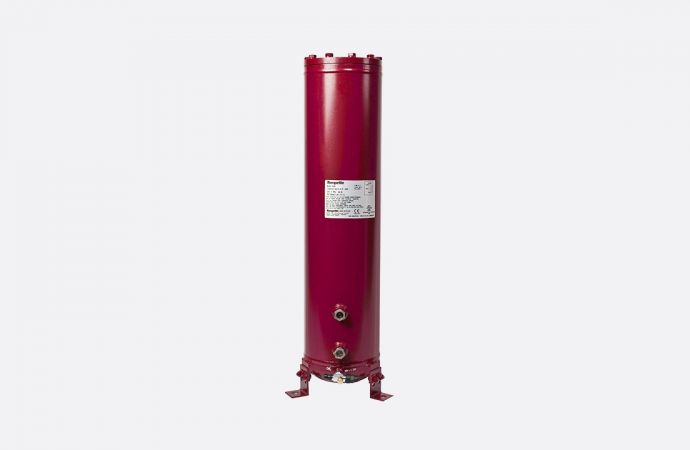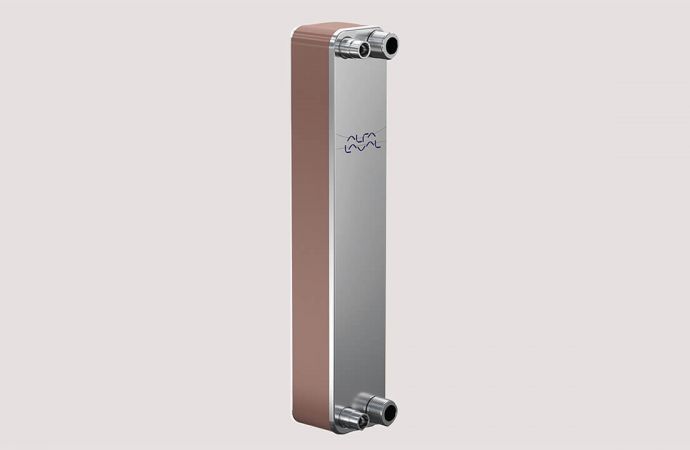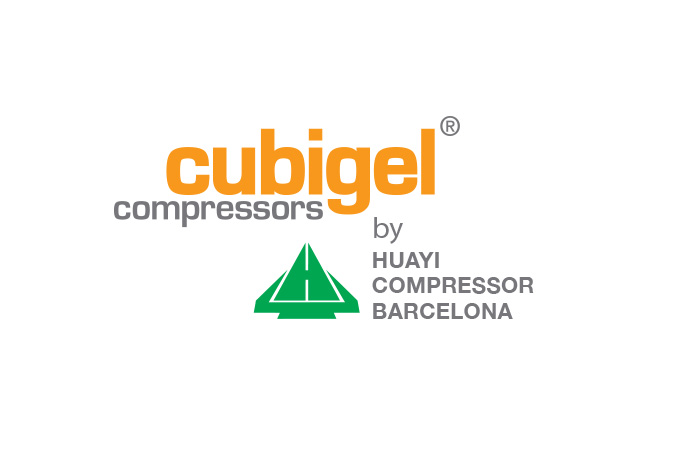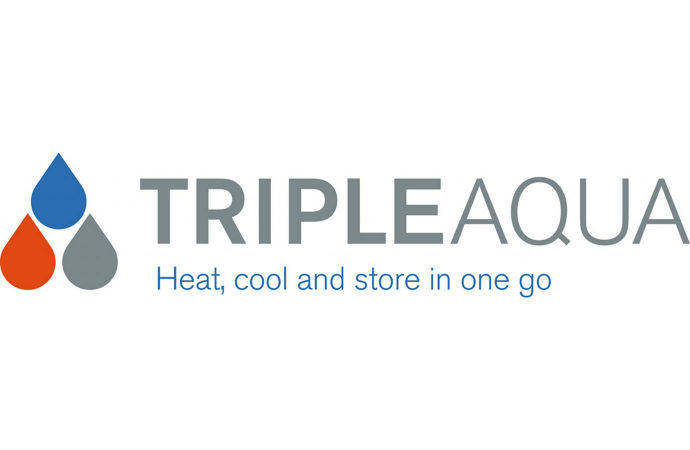A higher flammable refrigerant charge limit, likely to be approved in 2019, should broaden the market for hydrocarbons in commercial refrigeration, according to manufacturers.
_(1)_1547127262.png)
For this latest of our NEXT Series of articles, hydrocarbon system manufacturers and component suppliers expressed confidence to this website that technology sales would increase in the commercial refrigeration and HVAC sectors in 2019.
IEC vote to herald market shift
Those working in the commercial refrigeration sector are particularly confident that proposed increase of the charge limit for A3 (flammable) refrigerants under the auspices of the International Electrotechnical Commission (IEC) will go ahead when the final vote takes place in mid-March.
Still today there are some applications that cannot be covered with 150g and this is a limitation to expand the use of hydrocarbons (HCs)."
– Claudia Reggiani, Huayi Compressor Barcelona
The charge-limit increase to 500g from 150g will apply to hydrocarbons like propane and isobutane in commercial refrigeration equipment under the IEC global standard 60335–2–89. The higher charge would likely widen the use of hydrocarbons as natural refrigerants worldwide.
“For sure [the vote] will have an impact,” Claudia Reggiani, marketing manager at Huayi Compressor Barcelona, S.L., told hydrocarbons21.com. “Still today there are some applications that cannot be covered with 150g and this is a limitation to expand the use of hydrocarbons (HCs). With the new charge limit, this limitation will disappear and will help to faster expand the use of HCs in the light commercial market.”
Diego Malimpensa, business unit manager, retail solutions at CAREL, agrees that the charge limit increase will boost the potential for hydrocarbon-based technology. “CAREL [...], with its waterloop and plug-in solutions, is already able to support systems with a propane charge exceeding 150g, with both single- and multi-circuit solutions,” Malimpensa says.
Commercial refrigeration to remain buoyant
Reggiani expects hydrocarbon uptake to increase with the new limit. “We will keep enlarging our range of products working with natural refrigerants. We will do it by developing more efficient compressors, by expanding the cooling capacity to be updated when the new standard is ready, and by working in new voltages to have worldwide coverage.”
Enrico Zambotto, refrigeration director at Arneg, an Italy-headquartered retail solutions provider, argues that plug-in propane (R290) cabinets will increase threefold in 2019, mainly thanks to the commitment of progressive retailers.
Swiss retailer Migros, which has trialled propane plug-in units, will continue to use them in small stores. “For some plug-in cabinets, for example in restaurants and for convenience food (in-store takeaways), R290 will be the refrigerant of choice,” argues Andreas Moser, chief refrigeration engineer, at Migros Engineering Solutions.
Harrison Horning, director of maintenance at Hannaford, a US-based supermarket chain in Maine, also plans to jump on the hydrocarbon self-contained systems train.
“Hannaford has been working on a concept for use in existing stores, based on the following: self-contained, water-cooled R290 cases for frozen food and ice cream; self-contained, air-cooled coffin cases for frozen meat and seafood (which could use R290); water-cooled condensing units for walk-in freezers (not R290); and a fluid cooler,” Horning said.
We hope to pilot some [R290 plug-in units] in existing stores in 2019 and 2020."
– Harrison Horning, Hannaford
“We hope to pilot some or all of the above in existing stores in 2019 and 2020,“ he added.
Graeme Houghton, Global Category Leader – Commercial Equipment & Servicing at Heineken, says the beverage giant will increase, “the amounts of natural refrigerant equipment (R290 and R600) across fridges and draught beer appliances”.
“This is expected as we convert the last pockets of equipment that until now have not been viable due to power requirements or supply/service constraints,” Houghton adds.
HVAC is the new reality
Hydrocarbon-based air-conditioning and heat pump systems will increase, similar to commercial refrigeration equipment but not as quickly, according to manufacturers.
One key manufacturer, TripleAqua, is in the process of re-designing its energy-efficient heat pump and energy storage system employing propane with a global warming potential (GWP) of three and a charge of less than 11 lbs. (5 kg). TripleAqua is confident it is on the right trajectory for the HVAC market.
“I would be happy we’d again start to sell a handful of machines in 2019, once they’ve re-designed them,” Menno van der Hoff of TripleAqua Licensing Ltd. told hydrocarbons21.com.
“As a market observer [of] heat pump and air-to-water chiller machines, I [do] expect a real growth in sales of [air/water] chillers and heat pumps running on propane,” said Van der Hoff. “In 2015, TripleAqua was the only propane heat pump in its range on the market. Now, you can find almost 10 brands in 2019. So the market is really going the right way.”
Another company eyeing this new market is Tecnofreddo. “[We have] seen an increasing interest and demand in 2018, and we think this will grow,” said Manuela Rallo, sales area manager at Tecnofreddo. “Although commercial adoption and proliferation of such units is still restricted and subjected to different governances, we expect a huge increase in production for R290 units, especially with the phase-down of HFCs [and] increasing awareness of the advantages of using this technology.”
Rallo said: “Reversible air-to-water heat pumps working with R290 to heat and cool commercial buildings, hospitals and universities, and for process cooling, are becoming more interesting price-wise than ammonia [and] popular amongst Tecnofreddo clients very recently.”
We will test R290 heat pumps from different manufacturers for tap-water production in supermarkets and central buildings."
– Collin Bootsveld, Colruyt
HVAC manufacturers will also find end users willing and ready to use their products. Collin Bootsveld, a project engineer at Colruyt, said the Belgian retailer would experiment with R290 heat pumps in supermarkets and commercial buildings in 2019.
“We will test R290 heat pumps from different manufacturers for tap-water production in supermarkets and central buildings. We will also test them for space heating in shops, central offices and distribution centres,” Bootsveld said.
“Although Colruyt has a policy of not installing air-conditioning, we do need it on some occasions and are looking to test comfort cooling based on natural refrigerants. The technologies we hope to test are R290-based split air conditioners and dew-point indirect evaporative cooling (water).”
The retailer will also continue its strategy of rolling out R290 and R1270-based (propylene) chillers for its fridges and freezers in Belgian shops.
Vincent Grass, refrigeration manager at multinational food and beverage giant Nestlé, anticipates a wider variety of HC-based chillers to be made available. “More and more hydrocarbon solutions [are on the market], such as small capacity air-cooled chillers, [which] are cost-effective and efficient,” Grass notes.
The NEXT Series takes an annual look at the key market, policy and technology drivers likely to influence natural refrigerant uptake. For updates on these and other key policy developments over the course of the year, sign up to our newsletter.
Related stories







